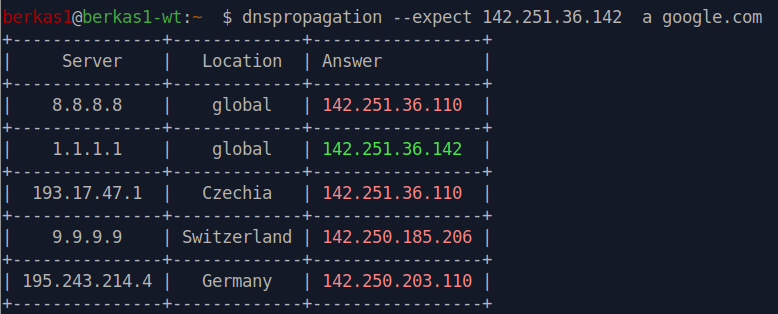Simple CLI utility to check propagation of DNS records using multiple DNS servers.
pip install dnspropagation
In the most simple form you can just specify type of record and domain name:
dnspropagation a google.com
# or you can use docker version
docker run berkas1/dnspropagation a google.com
It will check entries for a given type and domain name using five default public nameservers. It returns a human-readable colorful table. You can use --json or --yaml parameters to make it machine-readable.
You can either supply custom DNS server to query using the --server parameter, which can be used multiple times:
dnspropagation --server 1.1.1.1 --server 8.8.8.8 a google.com
# or
docker run berkas1/dnspropagation --server 1.1.1.1 --server 8.8.8.8 a google.comOR you can add a yaml-formatted list of servers. This has to follow given format (as can be seen in this file) and be supplied to the utility using the --custom_list parameter.
You can expect a value to be returned by DNS servers. If this value is returned, its color will be green. Otherwise the value will be shown red.

When using the default DNS servers or a custom list, you can limit which servers you want to query using parameters --country and --owner.
Both can be used multiple times. When used, the AND operation is used.

